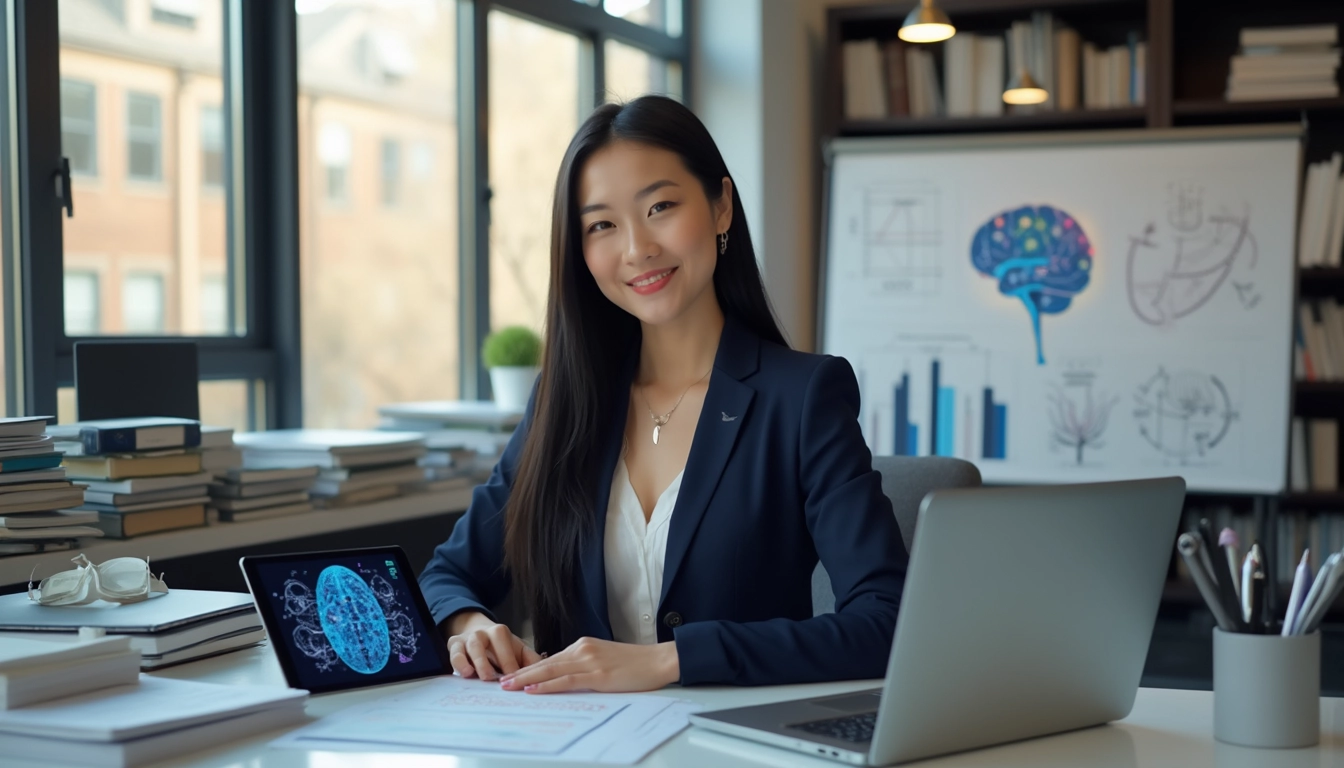
Harvard Welcomes Pioneering NeuroAI Scientist SueYeon Chung in 2025
Harvard University is set to welcome computational neuroscientist SueYeon Chung to its prestigious Kempner Institute and FAS Center for Brain Science in July 2025. Her groundbreaking work at the intersection of neuroscience and artificial intelligence, combining theoretical approaches with practical applications, positions her as a pioneer in understanding both biological and artificial neural networks.
Table of Contents
Key Takeaways:
- Chung will hold dual faculty positions at Harvard’s Physics Department and School of Engineering and Applied Sciences
- Her research combines neural computation with artificial neural networks to advance both fields
- She brings expertise in developing mathematical theories for neural representations and brain-inspired AI models
- Recent recognition includes the 2024 Sloan Research Fellowship and Klingenstein-Simons Fellowship Award
- Her work aligns with Harvard’s mission to understand natural and artificial intelligence systems
Bridging Neuroscience and Artificial Intelligence
As a leader in NeuroAI research, Chung’s work focuses on understanding the fundamental principles that govern both biological and artificial neural systems. Her innovative approach combines theoretical frameworks with practical applications in AI, creating a unique perspective on neural computation.

Research Impact and Innovation
At the core of Chung’s research lies the development of mathematical theories that capture neural representations in both biological and artificial systems. Her work at NYU and the Flatiron Institute has already made significant contributions to our understanding of how neural systems process and transform information. By leveraging advanced computational techniques, she’s pushing the boundaries of machine learning and neuroscience integration.
Future Directions at Harvard
Chung’s ambitious research agenda at Harvard will focus on several key areas that promise to advance both artificial neural networks and our understanding of brain function. She plans to investigate neural manifolds and develop brain-inspired mechanisms to enhance AI model reliability. This work could lead to significant breakthroughs in creating more efficient and robust AI systems.
Academic Excellence and Recognition
With a Ph.D. in applied physics from Harvard University, Chung’s academic journey reflects her commitment to interdisciplinary excellence. Her recent selection as a 2024 Sloan Research Fellow and receipt of the Klingenstein-Simons Fellowship Award highlight the scientific community’s recognition of her innovative work in computational neuroscience.
Advancing Automation and Research Tools
In the rapidly evolving field of computational neuroscience, efficient research tools and automation are essential. Automation platforms like Latenode can streamline research workflows and data analysis, supporting the kind of complex computational work that characterizes modern neuroscience research.


